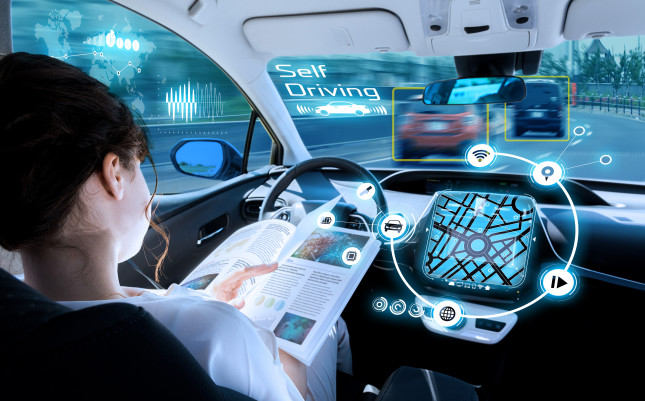Cars of the future

How will the future of the automotive industry develop? What trends can we expect in the future? Based on current trends and tests, we can expect the following five technologies in the automotive industry:
1. Intelligent car
Although technology that displays information about the car and its surroundings on the windshield sounds like something from a computer game, it is a reality today. AR (augmented reality) dashboards will be able to display the details of the car and its surroundings. With this technology, you will be able to know if you are approaching another car too fast or if you have to shift to the next lane to avoid collision. As early as 2015 at the Consumer Electronics Show, Huyndai presented how AR could look like.
2. Communicative car
People are constantly developing new ways to communicate with the world around them and with other people. Why not extend it to cars? Wouldn't it be great if your car could communicate with semaphore to anticipate stopping? The future intelligent cars will be better equipped to communicate not only with the road they move on but also with other cars. This would prevent traffic accidents as cars would know where other vehicles are located. This type of communication is referred to as V2V or vehicle-to-vehicle communication and is currently being tested by Ford. According to the European Union regulation from March 2018, all new eCall cars must have a system that will automatically alert emergency services in the event of an accident.
3. Personalized car
Today, when buying a car, we can choose color and additional equipment, but that is far from the type of personalization the future car can provide. It will be possible to incorporate biometric systems into the car such as fingerprint or digital identification video camera to make your car just yours. 3D printing promises personalized interior according to our needs and wishes. It is becoming increasingly used by brands such as BMW, Opel and Ford in their production lines.
4. Autonomous car
Most of us have already seen videos of autonomous cars and it seem like they will become part of our normality in the near future. Engineers are already testing these cars on public highways and roads. Google cars are becoming more reliable. Such cars recognize their surroundings using lasers, radars and cameras. In addition to making commuting easier, they would contribute to smoother traffic and less accidents as well. Optimus Ride, one of the first Boston-based startup for autonomous vehicles, announced that it will launch an autonomous shuttle service in New York in the summer of 2019, which will only be available to some 8,500 employees of the Brooklyn Navy Yard factory.
5. Sustainable car
The environment should not be taken for granted. Therefore, car manufacturers pay close attention to developing new ways to be greener and more energy-efficient. Car’s body panels such as bonnet, roof and doors made of materials that can accumulate energy serve as an example of such improvement. Electric cars use a battery as a power source, however it is heavy and takes up a lot of space in the car and so the accumulative material presents a better option. Such material can accumulate energy and charge faster than today's car batteries. Their lighter construction allows more efficient driving. The major automobile manufacturers such as Toyota are exploring the possibilities of solar cars intensively. It is exciting to see how the car industry is changing rapidly and looking for ways to reduce carbon footprint while increasing road safety at the same time. Progress of automotive industry is undeniable. Thanks to new technologies and huge demand, this millennium cars are technologically very different from former generations.
Sign in to Autumn ITAPA 2024





















